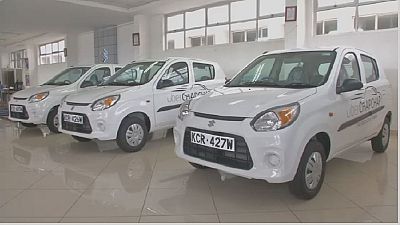Kenya
Africa should be a huge growth market for automakers. However, transport links are weak and personal car ownership still very low. For instance, there are 25 cars per 1,000 Kenyans compared to 786 in the United States, according to the World Bank.
At Suzuki Motor Corp’s showroom in the Kenyan capital Nairobi, hundreds of its Alto compact cars are waiting to be collected by customers, most of whom are drivers for ride-hailing company Uber Technologies. It struck a loans and discount deal with the Japanese carmaker and South Africa’s Stanbic Bank at the start of 2018.
The Alto deal in Kenya, soon to be extended to Uganda and Tanzania, offers car financing for top-rated Uber drivers at a price of just over $8,000, lower than the usual $9000. The loans are repaid with the money the driver earns providing services.
“I heard that Stanbic Bank was financing people up to 100 percent to enable them get their own cars, and that you could pay over time, which was good. I went to a meeting at Stanbic, signed the documents and I believed that since I was able to pay the partner, then I would manage to pay the loan as well,” Njoroge, said.
Suzuki’s strategy has propelled it from the bottom of sales tables in Kenya, where it languished for decades with emerging brands from China, to the top five.
Suzuki sold 523 Altos in Kenya this year.














Go to video
Kenya set to surpass Ethiopia as East Africa’s largest economy in 2025 – IMF
Go to video
Eliud Kipchoge returns to the London Marathon
Go to video
Kenya: Ant smuggling suspects set to be sentenced on May 7
01:16
Africa mourns Pope Francis, a voice for peace and justice
01:14
ECOWAS Meets in Ghana to Tackle Member Withdrawals
Go to video
Kenyan runners win both male and female races at Boston Marathon 2025